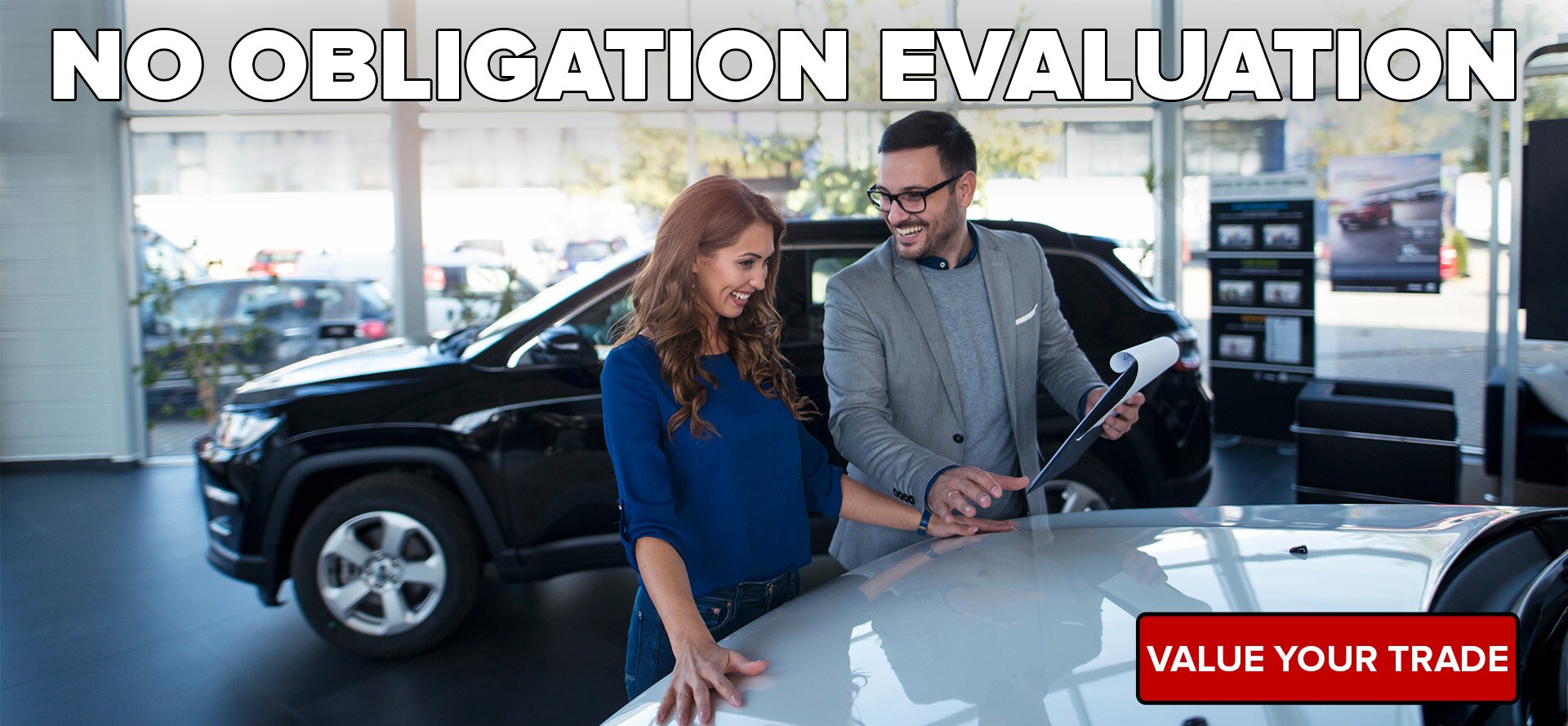
A Guide To Trading In Or Selling Your Vehicle
Tips for a Smooth Trade-In Process
Trading in your car doesn't have to be complicated. This guide from Beaver County Dodge Chrysler Jeep Ram will show you how to trade in a car step-by-step. You'll find out what documents you need, how to prepare your car, and how to get the best value for it.
Here's what you can expect to see in this article:
- Trading in at a dealership is quicker and less stressful than selling privately, handling paperwork and offers on the spot.
- One major benefit of trading in is the potential tax savings, where you only pay sales tax on the price difference between your trade-in and new car.
- To maximize trade-in value, aim to trade your vehicle in under 60,000 miles and within three to five years of ownership.

Trade-In vs. Private Sale: Why Selling To A Dealer Is The Smarter Choice
When it comes to parting ways with your old ride, you have two primary options: trading it in at a dealership or selling it privately. While the allure of a higher trade-in value might tempt you to go the private sale route, the reality often involves significant time and effort. Think about it - you'll need to list your car online, meet potential buyers, manage paperwork, and deal with no-shows and potential scams.
On the flip side, trading in your car at a car dealership offers a seamless, secure, and quick process. Benefits include:
- Professional appraisals handled by the dealership
- Quick paperwork processing
- No need for private meetings or haggling
- Receiving an offer in less than 30 minutes at Beaver County Dodge Chrysler Jeep Ram, making it incredibly convenient
One of the biggest perks of trading in at a dealership is the potential tax benefit. In some cases, you might only pay sales tax on the price difference between your trade-in and your new car, saving you hundreds of dollars. This is a significant advantage that private sales just can't offer.
While private party sales might sometimes promise more money, trading in at a dealership is generally the smarter choice due to the convenience, security, and reduced stress of purchasing from different dealers. Plus, you get to negotiate and avoid those awkward meet-ups with strangers in parking lots.
How To Sell Your Car In PA: Title Transfer, Taxes, and More
Selling your car in Pennsylvania can be a breeze if you know the steps. When selling to a dealership, you'll need your car, a lien-free title in your name, and a valid PA photo ID. The dealership handles the appraisal, makes an offer, and manages all the paperwork, including title transfer and payment, often on the same day. This method avoids the hassle of creating listings, meeting strangers, negotiating, and dealing with PennDOT forms. It can also offer a tax benefit if you trade in your car for a new one, as you only pay sales tax on the price difference.
On the other hand, selling privately requires significantly more time and effort. You're responsible for advertising your car, coordinating meetings and test drives with potential buyers, negotiating the sale price, and ensuring secure payment. For the title transfer, both you and the buyer must be present at a PennDOT-authorized service, and a notary public must witness and notarize the assignment. As the owner, you'll need to disclose any known issues with the vehicle and remember to remove your license plates, as they stay with you in PA.
One major difference between selling privately and trading in is the tax responsibility. In private sales, the buyer is responsible for paying sales tax, registration fees, and any necessary inspections. This can be a turn-off for some buyers, potentially making your car harder to sell.
Opting to sell your car to a dealership streamlines the process and often provides financial benefits you wouldn't get from a private sale. The convenience of having professionals handle the details and the potential tax savings make this option particularly attractive.
Does Trading In A Car Reduce Sales Tax? What You Should Know
One of the most significant advantages of trading in your car at a dealership is the trade-in tax credit. This credit allows you to deduct the value of your trade-in vehicle from the price of the new vehicle before sales tax is calculated, leading to significant savings. For example, if you trade in a $15,000 vehicle for a $50,000 new car, you only pay sales tax on the $35,000 difference, saving you hundreds of dollars.
This tax credit is a major perk for Pennsylvania drivers, as it makes the financial aspect of trading in a car much more appealing. However, it's important to note that you only receive this tax credit if the trade-in and new vehicle purchase happen as part of the same transaction at a dealership. Selling your car privately means you miss out on this specific tax benefit.
Besides sales tax savings, trading in offers instant equity towards your new purchase and a simplified trade in process, with the dealership handling all the paperwork. It's a win-win situation that makes trading in a car at a dealership a good deal and a smart financial move.

Best Time To Trade-In Your Car For Maximum Value
Timing is everything, especially when it comes to getting the best value trade-in value for your car. Ideally, you want to trade in your vehicle before it accumulates high mileage - under 60,000 miles is a good benchmark. This is because cars with lower mileage are more attractive to buyers and fetch higher prices.
Experts suggest that the optimal ownership period before trading in is between three to five years. During this time, your vehicle remains modern, desirable, and potentially under warranty, which helps you get the most value and avoid costly repairs. Trading in your car before major repairs or warranty expiration can save you money and ensure you get a fair price.
If you have an existing car loan, you don't necessarily need to pay it off before trading in. If you have positive equity - meaning your car is worth more than you owe money - it's a great time to trade in. If you have negative equity, where you owe more than the car is worth, you can still trade in, but the difference might be rolled into your new loan, which needs careful financial consideration.
Dealerships like Beaver County Dodge Chrysler Jeep Ram can help evaluate your trade-in, assess your current loan situation, and handle the payoff process, simplifying the transition to a new vehicle.
How Long Does It Take To Sell A Car? What To Expect
The time it takes to sell a car can vary significantly depending on whether you choose to sell it privately or to a dealership. Private sales are notoriously time-consuming, often taking 30-40 days or longer. This duration accounts for the time needed to:
- Advertise
- Take high-quality photos
- Write compelling listings
- Meet with potential buyers
- Handle all the paperwork and title transfers yourself.
In contrast, selling to a dealership like Beaver County DCJR can often be completed on the same day. They offer same-day appraisals, on-the-spot offers, and handle all the necessary paperwork and trade-in logistics. This quick turnaround is a significant advantage for those looking to sell their vehicle without the hassle.
Several factors can influence how quickly a car sells, including:
- Condition
- Mileage
- Make and model
- Competitive pricing
- Local market demand
Clean, well-maintained used vehicle cars with lower mileage and in-demand models like trucks and SUVs tend to sell faster, reflecting the importance of a vehicle's condition and the higher demand for these types of vehicles, whether it's a new or used car.

How To Prepare For A Car Trade-In: Documents & Tips
Preparing your car for a trade-in can significantly impact the trade-in value you receive. Start by gathering essential documents:
- Your vehicle title (or loan payoff information if financed)
- Current vehicle registration
- Proof of insurance
- A valid driver's license
- All keys/remotes
- The owner's manual
Service and maintenance records are highly recommended as they demonstrate consistent access to the upkeep of lease service records, which can help manage overall cost with permission and research.
Next, prepare your vehicle by cleaning the interior and exterior, removing all personal items, and bringing any extra accessories that came with the car. Address minor issues like topping off fluid levels, checking tire pressure, and replacing burnt-out lights to present your vehicle in the best possible condition, prepared for any journey.
Understanding the finance aspects is crucial. Consider the following:
- Know your current loan balance.
- Request a payoff letter if your car is financed.
- Be aware that in most states, including Pennsylvania, you only pay sales tax on the difference between your new car's purchase price and your trade-in value, which can help determine significant savings on auto loan loans.
While trading a vehicle into a dealership is faster and more convenient, selling privately might yield more money but requires more effort. Consider trading when demand for your specific vehicle is high or during dealership promotions.
Ready to Trade?
Trading in your car offers numerous benefits, from convenience and security to potential tax savings and quick transactions. By understanding the trade-in process, gathering the necessary documents, and timing your trade for maximum value, you can ensure a smooth and profitable experience. So why wait? Start preparing your car for trade-in today and drive away with confidence in your new ride from Beaver County DCJR.
Frequently Asked Questions
What is a trade-in tax credit?
A trade-in tax credit lets you subtract the value of your old car from the new one's price before taxes are applied, which can save you a good chunk of change. It's a smart way to save on your next ride!
How long does it typically take to sell a car privately?
It usually takes about 30 to 40 days to sell a car privately, but it can take longer depending on how you advertise and interact with buyers. Just be patient and organized!
Do you get a tax credit for trading in a car in Pennsylvania?
Yes, you can get a tax credit for trading in a car in Pennsylvania, but it applies only if you do the trade-in and purchase of the new vehicle in one go at a dealership.
What documents do you need to sell your car to a dealership in PA?
To sell your car to a dealership in PA, make sure you have the vehicle title in your name, a valid Pennsylvania photo ID, and the current registration handy. It's pretty straightforward!
When is the ideal time to trade in a vehicle?
The best time to trade in your vehicle is before it hits 60,000 miles and before you face any major repairs. Keeping it in good shape really pays off when you're ready to upgrade!
Make an Inquiry
* Indicates a required field
Contact
Beaver County Dodge Chrysler Jeep Ram
2761 Constitution Blvd
Beaver Falls, PA 15010-1291
- Sales: 724-847-7770
- Service: (724) 624-8477
- Parts: (724) 624-9801